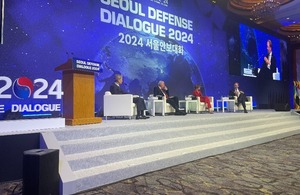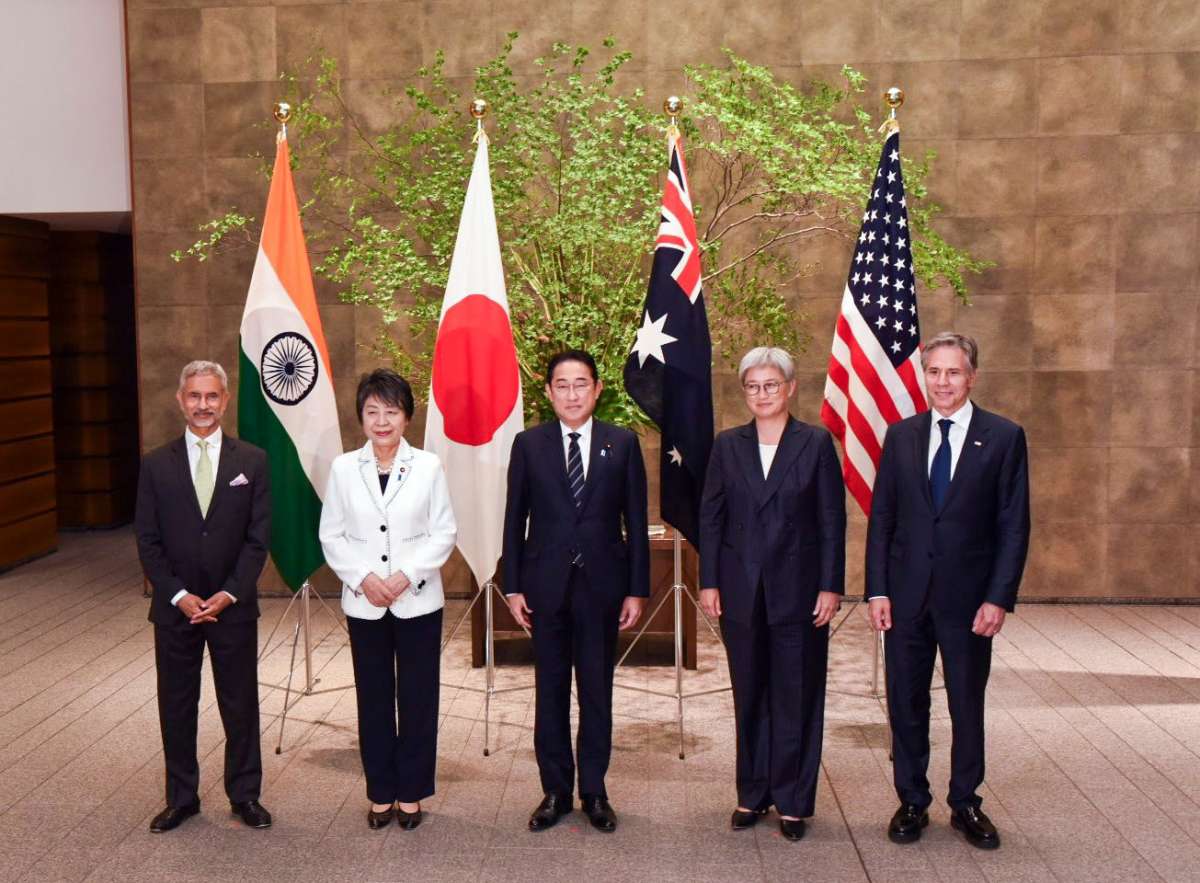The Summit focused on the adoption of AI in the military, which has the potential to transform all aspects of defence..reports Asian Lite News
Defence Minister Lord Coaker pushed forward the UK’s relationships with partners in the Indo-Pacific last week with visits to the Republic of Korea and Vietnam.
In the Republic of Korea, the Minister attended the Responsible Artificial Intelligence in the Military (REAIM) Summit, co-hosted by the UK in Seoul, where international discussions about the use of AI in the military took place.
The Summit focused on the adoption of AI in the military, which has the potential to transform all aspects of defence and change the nature of warfare – presenting opportunities including better quality and quicker decision-making and automating dangerous tasks. The summit also addressed the risks of AI and the need to adopt technologies safely and responsibly.
Following the REAIM Summit, Lord Coaker attended the Republic of Korea – UN Command Defence Minster Meeting. The UN Command is a multinational group, established to support the Republic of Korea’s security during and after the Korean War.
Attending the Seoul Defence Dialogue, Lord Coaker met Vice Defense Minister Seon ho Kim to discuss the UK’s close partnership and cooperation with the Republic of Korea. Lord Coaker addressed the dialogue on the challenges and future of defence innovation.
Defence Minister Lord Vernon Coaker said, “Our security at home in the UK is inextricably linked to stability in the Indo-Pacific. That’s why it’s more important than ever that we continue to work with regional partners and allies to support global security and stand up for international laws and norms. That’s exactly what I’ve been doing in Seoul and Hanoi, and it’s been an honour to visit so early in my post to discuss our cooperation on the opportunities and challenges we face.”
During his time in the Republic of Korea, Lord Vernon Coaker also visited the demilitarized zone, and met with UK Royal Marines who are in the Republic of Korea following recent exercises with ROK Armed Forces. The UK remains committed to peace and security on the Korean Peninsula and the collective security mechanisms on the Peninsula.
The UK and Republic of Korea have long worked together in support of peace and security in the region. In July, the Minister joined Korean representatives at the Korean War Memorial in London to recognise the sacrifices of all those who gave their lives during the Korean War, including over one thousand British military personnel.
The visit last week was an important moment to build on the meeting held by Prime Minister Kier Starmer and President Yoon in July, and the Downing Street Accord, signed during President Yoon’s visit to the UK in November 2023.
Visiting Vietnam to co-chair the fifth annual UK-Vietnam Defence Policy Dialogue, Lord Coaker held discussions with Vice Minister Chien on defence and security cooperation. Last year marked 50 years of diplomatic relations between the UK and Vietnam, and the relationship has developed over this time.
The UK recognises that security in the Indo-Pacific region is indivisible from that in Europe and is committed to strengthening relationships in the region further to support stability.
While in Vietnam, the UK Minister visited the Vietnam Department for Peacekeeping Operations. The UK is supporting Vietnam in developing as a UN Troop Contributing Nation, and has supported Vietnam’s deployments since 2018, including to South Sudan and Abyei, by training medical and engineering personnel.
The Minister met with soldiers from the British Army’s 8 Engineer Brigade who have been supporting Vietnam with training and set out how the UK is eager to assist with future initiatives.
The Government will make allies our strategic strength and is determined to build on our Indo-Pacific commitments and partnership.
ALSO READ: Starmers’s Gray Quid Row


